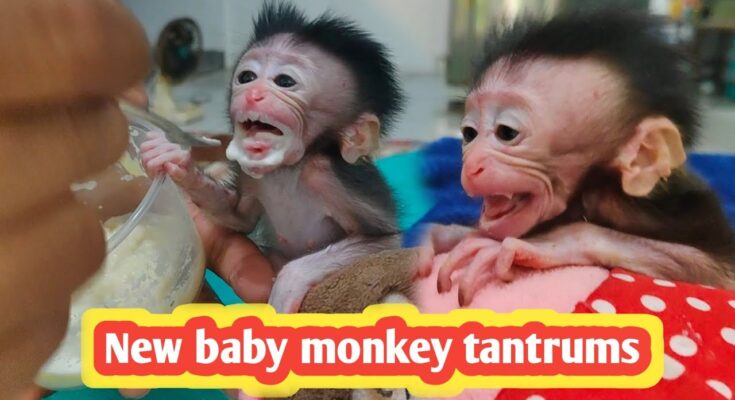When a baby monkey vomits, it’s crucial to act quickly and carefully to ensure its health and well-being. Vomiting can be a symptom of various underlying issues, ranging from dietary indiscretions to infections or more serious conditions. Here’s a step-by-step guide on what to do:
- Assess the Situation: Check the baby monkey for any other symptoms such as lethargy, diarrhea, or dehydration. Note the frequency, amount, and appearance of the vomit, as this information will be helpful for a veterinarian.
- Remove Food and Water: Temporarily withhold food and water to give the monkey’s stomach a chance to settle. Reintroduce water slowly after a few hours to prevent dehydration. If vomiting persists, continue to withhold food but offer small amounts of water frequently.
- Keep the Monkey Warm and Comfortable: Ensure the baby monkey is kept in a warm, quiet, and comfortable environment. Stress and cold can exacerbate symptoms and delay recovery.
- Hydration: Dehydration is a significant risk with vomiting. If the monkey shows signs of dehydration (sunken eyes, dry mouth, lethargy), provide an oral rehydration solution. This can be given in small, frequent doses.
- Monitor Closely: Observe the monkey closely for any changes in behavior or symptoms. If vomiting continues for more than a few hours or if other symptoms develop, it’s essential to seek veterinary care.
- Veterinary Consultation: Contact a veterinarian with experience in primate care. Describe the symptoms and provide any relevant information, such as recent changes in diet, environment, or exposure to potential toxins.
- Follow Veterinary Advice: Follow the veterinarian’s instructions carefully. They may recommend diagnostic tests such as blood work or imaging to determine the cause of vomiting and prescribe appropriate treatment, which could include medications or dietary changes.
Prompt and attentive care is crucial when a baby monkey vomits. Early intervention can prevent complications and ensure the best possible outcome for the animal.
